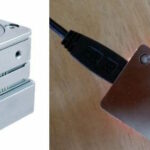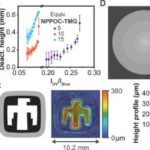Copyright has always been one of the growing concerns of the digital age. Many companies are, understandably, quite unsure about how to cope with the potential advent of 3D printers, seeing as how they can replicate their trademarked goods. While it may be great for the consumer, toy manufacturers or merchandisers could potentially suffer heavy losses. It could also lead to a boom in bootlegged, privately printed knock-off products. 3D printers provide a minefield of legal red tape as well. However, it looks like Create it REAL is offering a solution.
This Denmark-based company invented a platform that may just allay the fears of many a frustrated copyright lawyer. The company’s new real-time processor decrypts files and matches it to any copyrighted designs. The new processor is an attachment for SLA and FDM printers.
Previously, Create it Real produced the 3D RTP v450, a real-time processor add-on that, upon instalment, sped up the 3D printers by about 450 mm/sec. This was a great addition that exponentially increased print speeds far above the highest levels possible at the time. Create it Real are promising that this new processor will multiply speeds by up to 5 times.
Aside from aiding companies in protecting copyright, the company also proposes features that benefit the consumer. One of these is that the processor guarantees that users can access high quality branded models approved by the company.
3D Printing and Copyright
It’s estimated that copyright violations could result in losses of $100 billion. Many companies are already taking steps to curb this sort of data and property theft. Disney recently published a patent for a method that allows them to print objects that cannot be replicated by printers or scanners. This, along with processors and monitoring, serves as one possible measure by which companies can take matters into their own hands.
It’s been sparked quite a debate in academic circles, leading many to argue that pursuing such copyright claims would be fruitless and counter-productive. Academics drew parallels to the proliferation of the Internet and online file sharing. Many companies will now have to start grappling with the possibility of unlicensed merchandise or products produced domestically.
While there are downsides, the industry might have to do what many in the entertainment fields eventually did by acquiescing a degree of power to the Internet. In many fields, they try and minimise the damage but also make use of the opportunities provided by the technology. Similarly, many companies could try to get ahead of the pirates and give out options for their own branded stl files. It’s not an all-encompassing solution, but it better than nothing.











